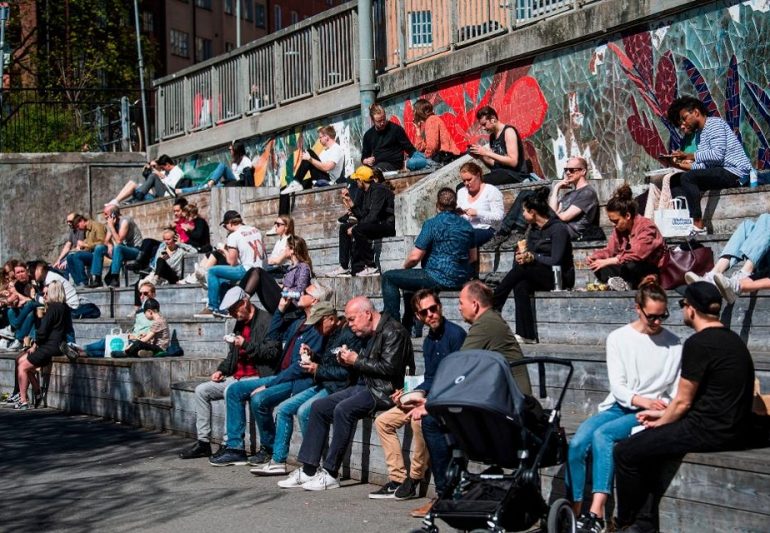The relatively soft approach to tackling the spread of coronavirus in Sweden should not be used as a template by other countries looking to emerge from lockdowns. That’s the verdict of Goldman Sachs analysts in a note published this week.
In contrast to many other European nations, Swedish schools, gyms, bars and shops have mostly remained open throughout the crisis. Swedish authorities have instead relied on trust, asking its citizens to stay at home where possible, exercising social distancing when not.
The strategy has plenty of critics and admirers. Compared to its Nordic neighbors, Sweden has recorded significantly more deaths. The country’s total to date—2,941—is more than three times the total deaths in Denmark, Sweden and Norway combined, even though that combined area has a much bigger population.
But compared to the death rate (per million citizens) in other countries including the U.K. and Italy, Sweden’s situation looks more favorable, especially as Sweden’s top epidemiologist says there are signs the infection rate has plateaued. In addition, the long-term economic damage is unlikely to be as bad as its Nordic neighbors.
Despite many around the world looking upon Sweden’s approach as a route out of restrictive lockdowns, Goldman analysts warn it cannot be copied like-for-like. That’s because of the relatively unique demographics in Sweden.
“Its population density is about half that of Italy, and Sweden has a high proportion of single-occupancy households, and a relatively low proportion of multi-generational households. The Swedish experience therefore cannot be extrapolated to support a swift reopening elsewhere,” said Goldman.
Even Swedish authorities themselves caution against returning everyday life to normal too soon. The Swedish Civil Contingencies Agency (MSB) warned of an increase in cases if citizens do not keep following government guidance. “There is a significant risk that people start to relax prematurely and stop following guidelines. Continue to follow the authorities’ advice and be part of the solution,” said Svante Werger, special adviser at MSB, to Aftonbladet.













